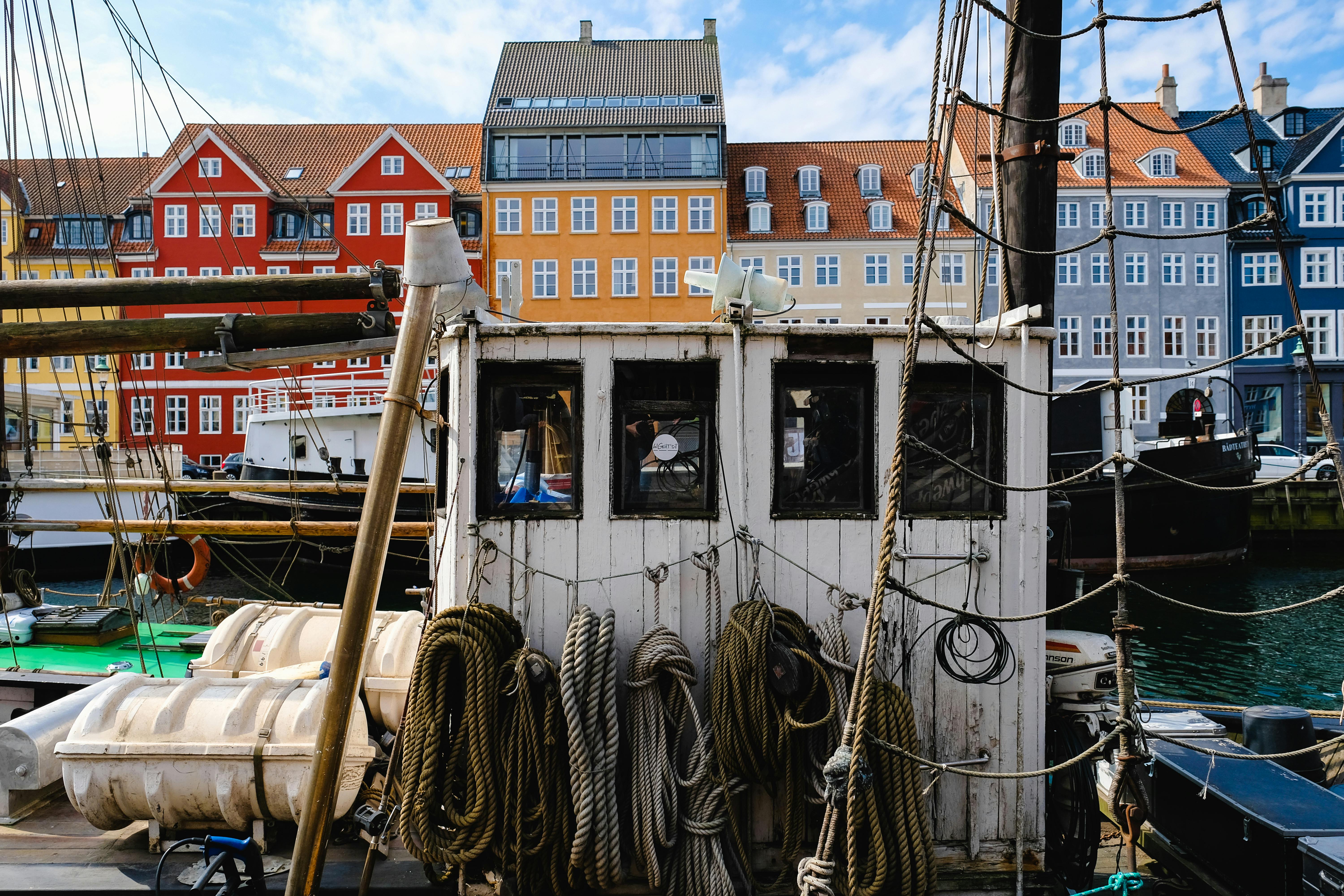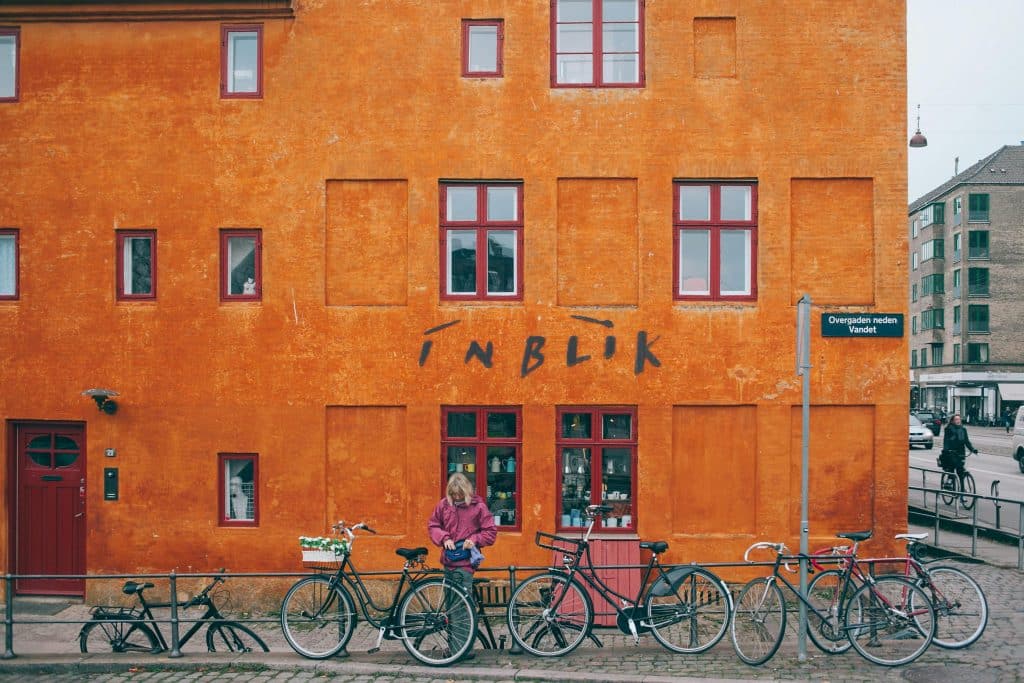Sustainability in Copenhagen: A Model for Green Urban Living

How many cities do you know where you can ski down the roof of an energy plant that turns waste into electricity? Copenhagen, the capital of one of the world’s happiest countries – Denmark – stands at the forefront of urban sustainability, consistently ranking among the world’s greenest cities. This isn’t just a coincidence, because as we’ll see in this blog post, sustainability and enhanced quality of life tend to go hand in hand. With ambitious goals to be the first carbon-neutral capital in 2025, sustainability in Copenhagen is evident in every aspect of city life, from its renowned cycling culture to its innovative start-up ecosystem. This blog explores the various initiatives that have positioned Copenhagen as a beacon of sustainability.
Sustainability in Copenhagen
The success of Copenhagen’s green initiatives lies in its foundation of sustainable infrastructure and multifaceted approach to nurturing sustainability. A common hurdle people face when given a novel, sustainable alternative, is the idea that our individual actions don’t count for much. Where Copenhagen has excelled is in building a community around sustainability and harnessing the power of joint action. By providing the necessary infrastructure, the city has driven systemic change and cultivated a conscious consumer mindset that will grow with the population. The city is not just promoting sustainable actions, but fostering a sustainable lifestyle.
A bikeable city
One of the most visible aspects of sustainability in Copenhagen is its cycling culture. The city boasts an extensive network of bike lanes, making it easy and safe for residents and visitors alike to navigate the city on two wheels. With over 62% of residents commuting to work or school by bicycle, the city has effectively reduced traffic congestion and carbon emissions while promoting healthier lifestyles.
Additionally, the city has implemented innovative solutions to encourage cycling. The ‘Green Wave’ system for instance, coordinates traffic lights to prioritise cyclists, allowing them to maintain a steady pace of 20km/h and encounter only green lights during their commute. This commitment to improving cycling infrastructure not only reduces the city’s carbon footprint but also enhances the overall quality of life for its residents.
Renewable Energy and Innovative Solutions
Copenhagen’s journey in carbon neutrality is heavily reliant on its adoption of renewable energy sources. The city is powered mainly by wind and solar energy, with ambitious plans to increase its renewable energy capacity further. Moreover, Copenhagen has embraced sustainable solutions such as biomass energy production, utilising discarded wood, straw, refuse and even human and animal waste to generate heat, electricity, and biofuel.
A prime example of the city’s forward-thinking approach is the CopenHill power plant. This innovative facility not only turns waste into energy but also doubles as a recreational area, featuring an artificial ski slope, hiking trail, and climbing wall. This creative use of space showcases Copenhagen’s ability to integrate sustainability into urban design, demonstrating how green infrastructure can also enhance the city’s liveability.
Smart City Initiatives
Copenhagen’s commitment to sustainable innovation extends to its use of cutting-edge technology. The city has put an extensive network of sensors in place that monitor energy and water consumption in real-time. This data-driven approach allows for more efficient resource allocation, minimising waste and reducing carbon emissions.
Furthermore, Copenhagen has invested in smart lighting systems throughout the city. Over 22,000 smart streetlights have been installed, capable of adjusting their luminosity based on the presence of cyclists and pedestrians. This initiative has led to a 76% reduction in the city’s lighting bill, showcasing the cost-effective nature of sustainable alternatives.
Circular Economy and Waste Management
Another key aspect of sustainability in Copenhagen is its focus on circular economy principles. The city has mounted an aggressive campaign to encourage residents to separate their rubbish, recycle, and reuse products. This initiative aims to reduce CO2 emissions by 59,000 tonnes annually.
Moreover, Copenhagen is at the forefront of innovative waste management solutions. The city is currently pilot-testing a robotics-based facility to sort plastic waste while its waste collection trucks run on biogas. Plans are underway to replace these with autonomous vehicles and small electric vehicles, further reducing noise and carbon emissions.
Eco-tourism and CopenPay
Copenhagen’s commitment to sustainability also evident in its tourism sector. The city recently launched a clever initiative called CopenPay, which aims to incentivise tourists to make sustainable choices during their visit. This unique program rewards eco-friendly actions such as cycling, using public transportation, or participating in clean-up efforts with free perks like meals, museum admissions, or cultural experiences. This not only encourages sustainable behaviour among visitors but also enriches their cultural experience of the city. By transforming green actions into a currency for experiences, Copenhagen is setting a new standard for sustainable tourism worldwide.

Innovative Startups Driving Sustainability in Copenhagen
Copenhagen’s thriving startup ecosystem has given rise to numerous sustainable initiatives, highlighting its culture of sustainable innovation.
- Worthmore: This telecommunications company and mobile provider raises awareness and funds for grassroots impact projects while motivating customers to recycle their old tech.
- Kleen Hub: A reusable packing system that allows customers to “borrow” food and drink containers with their simple “Tap and Reuse” system, with no deposit required. Their fully recyclable packing is carbon-positive after just 10 uses and can be reused up to 300 times.
- Skipit: A mobile app with a cross-border public transport card, making it easier to pay for sustainable transport across multiple cities. By simplifying the process of using public transport, Skipit encourages more people to choose eco-friendly travel options.
- Electricity Maps: Tech products that give real-time and predictive electricity signals. By providing information about the price and impact of their electricity usage, their products empower consumers to reduce their carbon emissions and save money.
- Reflow: A platform to calculate and share the carbon footprint of your company and products. This platform helps customers make data-driven decisions to transition towards a circular economy and share transparent sustainability reports with stakeholders.
- Junkbusters: An innovative solution for waste collection and disposal. Their app-based services make it easy for customers to get rid of waste in an environmentally friendly way, while also providing detailed environmental reports on waste quantities, types, and carbon footprints.
The Role of Sustainable Marketing Agencies in Copenhagen
Sustainable marketing is a powerful driver of change and plays a crucial role in promoting and maintaining sustainable initiatives like those outlined in this post. By effectively communicating the city’s sustainable practices and their benefits, sustainable marketers help raise awareness and encourage both residents and visitors to adopt eco-friendly behaviours.
CopenPay for example is a great example of sustainable marketing being instrumental in driving behavioural change. Using gamification to reward eco-friendly actions helps encourage consumers to adopt sustainable habits. This campaign demonstrates how well-crafted marketing strategies can bridge the gap between people’s desire to act sustainably and their actual behaviour. Sustainable marketing agencies in Copenhagen can help sustainable brands connect with the growing population of conscious consumers and amplify their message.
The Future of Sustainability in Copenhagen
As Copenhagen continues to push the boundaries of urban sustainability, it faces both challenges and opportunities. Despite its strong foundation of sustainable infrastructure, its growing population begs the question of whether it is possible to combine growth, development and increased quality of life with the reduction of carbon emissions. Nonetheless, as the world grapples with the urgent need for climate action, Copenhagen continues to lead the way in urban sustainability with a robust culture of innovation and progress.
For sustainable initiatives in Copenhagen looking to amplify their reach, consider partnering with growfish.co, a sustainable marketing agency dedicated to elevating sustainable brands without costing the earth.
Sources:
- https://www.8shades.com/green-city-goals-copenhagen-sustainability/
- https://www.theurbanist.org/2024/02/23/how-copenhagen-is-leading-the-world-in-sustainability/
- https://carbonneutralcities.org/cities/copenhagen/#:~:text=Electricity%20Mix&text=Copenhagen%20has%20major%20climate%20ambitions%2C%20and%20aims%20to%20be%20the,Energy%20Production
- https://www.lemonde.fr/en/international/article/2024/09/07/copenhagen-s-dream-of-becoming-a-low-carbon-city_6725196_4.html#
- https://www.wonderfulcopenhagen.com/wonderful-copenhagen/international-press/copenhagen-launches-new-green-experience-economy-initiative-copenpay
For more information about growing your sustainable business with a sustainable marketing strategy, get in touch with a member of the team at growfish.co. We’d love to hear form you!
Related Posts
Examples of Sustainable Marketing
In recent years, sustainability has become a key priority for consumers and businesses alike. As more people recognise the urgent need to address climate change and protect our planet’s resources, brands are finding innovative ways to incorporate sustainability into...
Sustainability in Ibiza: Building a Resilient Local Economy
Like many popular holiday destinations in Spain, the “party island” Ibiza, is suffering from the environmental and social consequences of mass tourism. However, a growing number of local initiates and businesses are laying the foundation for a more environmentally...
Sustainable Marketing in Spain: Revolutionising the Tourism Industry Amidst Anti-Tourism Protests
Spain, with its rich history and stunning landscapes has established itself as one of the world's top tourist destinations. However, the country now finds itself battling with the consequences of its own success. The recent protests across Barcelona, Majorca and the...




